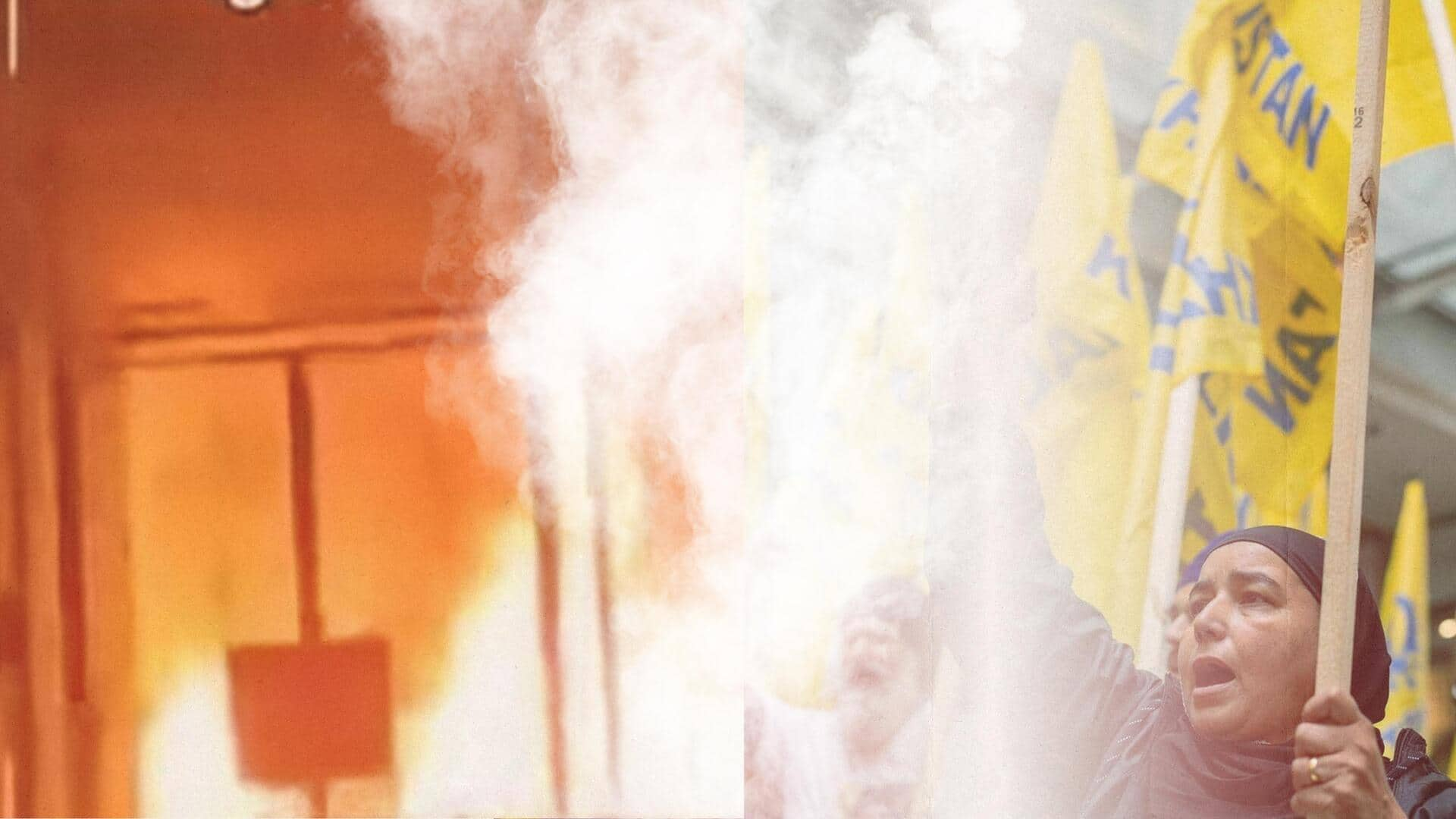
'Aggressively investigating' attack on San Francisco's Indian consulate: FBI director
What's the story
The Federal Bureau of Investigation (FBI) is "aggressively investigating" the attack on the Indian consulate in San Francisco in the United States (US), FBI Director Christopher Wray told National Investigation Agency (NIA) Director General Dinkar Gupta at the NIA headquarters on Tuesday. They discussed terrorist-organized criminal networks, and cyberterror and cybercrime probes. Wray emphasized the need for a joint response to evolving cyber threats and the importance of taking the partnership between the FBI and NIA to the next level.
Context
Why does this story matter?
Khalistani proponents over the past year have reportedly attacked Indian consulates in the US, the United Kingdom (UK), Canada, and Australia. The Indian consulate in San Francisco was attacked in March and July. The second incident saw attempts to set the consulate ablaze. However, the fire was quickly suppressed. An NIA team visited San Francisco after the July attack and released pictures of the suspects in September, seeking their identification and whereabouts.
Details
Growing nexus between terror groups, organized criminal syndicates
Gupta said the active nexus between terrorist organizations and elements within organized criminal syndicates was spreading to the US as well. Wray concurred, saying that a blending of lines between terrorists and criminals is now visible in cyberspace. He said terror incidents like 9/11 and the 26/11 Mumbai attacks have changed how nations respond to terror threats. Gupta reportedly expressed satisfaction concerning the ongoing process to extradite Tahawwur Hussain Rana, who planned the Mumbai attacks, currently jailed in Los Angeles.
What Next?
Cryptocurrency-based terror financing posing challenge
Gupta also raised concerns about the increasing threats in the cyber domain and how digital space is being exploited by extremists to propagate radical views globally. He mentioned the use of cryptocurrency for terror financing. Both sides acknowledged that with rapid technological advancements, tracing, tracking, and investigating crypto transactions has become a significant challenge. They recognized the difficulties posed by organized crime networks, cyber-enabled terror attacks, ransomware threats, economic crimes, and transnational terror crimes.
Pannun
No discussion regarding Pannun in meeting
Reports said that the issue of the alleged assassination attempt on Sikhs for Justice (SFJ) founder Gurpatwant Singh Pannun did not come up in the meeting since the matter is under investigation. In November, the Financial Times reported that the US foiled an attack on Pannun and raised concern about India's potential involvement in the plot. The government formed a high-level investigation committee to examine the allegations. An Indian citizen has been charged in connection with the alleged failed plot.
Attacks
What was the background of the attacks?
The March attack on the consulate came amid the Indian government's action on Waris Punjab De chief Amritpal Singh, a self-styled radical Khalistani preacher, and his associates. The July attack was triggered after the assassination of Hardeep Singh Nijjar in Canada. The US condemned both attacks, calling them "criminal offenses." In September, Canada accused India of orchestrating Nijjar's killing. Khalistan supporters are reportedly trying to conduct a referendum to secede Punjab from India and create a Sikh ethnostate.